BBC Cardiff Singer of the World 2021 Final, BBC Four review – an embarrassment of vocal riches | reviews, news & interviews
BBC Cardiff Singer of the World 2021 Final, BBC Four review – an embarrassment of vocal riches
BBC Cardiff Singer of the World 2021 Final, BBC Four review – an embarrassment of vocal riches
This year’s choice wasn’t easy – but Korean baritone Gihoon Kim deserved the prize
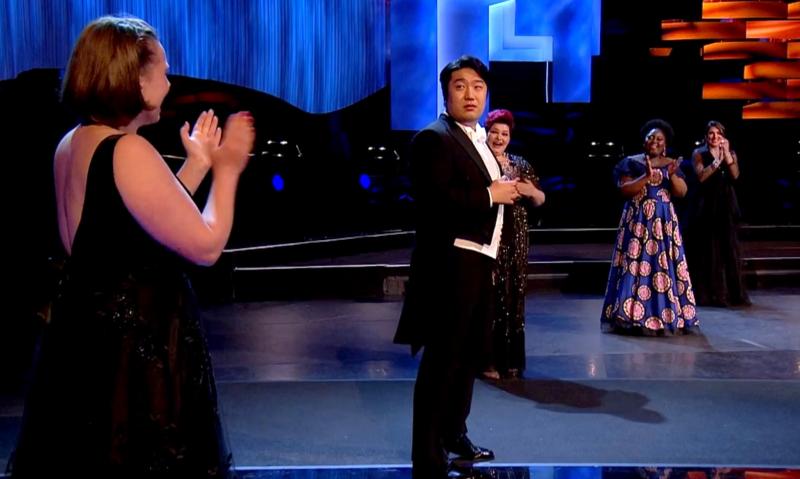
A massive musical hope for the future is what we all need right now, after 14 stop/semi-start months and a threatened decimation of the concert and opera scene, the danger of which isn't over yet.
As we were constantly, and rightly, told by expert commentators – among whom Alice Coote was the most original in her perceptions – the performance level from Kim and his fellow finalists was way beyond what you’d expect from relatively young singers. His natural, centred stance was a lesson to any aspiring vocalist: don’t move around too much, tell the story with your facial expressions and careful use of hands and arms as well as voice (pictured below in the Prologue to Leoncavallo's Pagliacci, with Andrew Litton conducting the BBC National Orchestra of Wales). 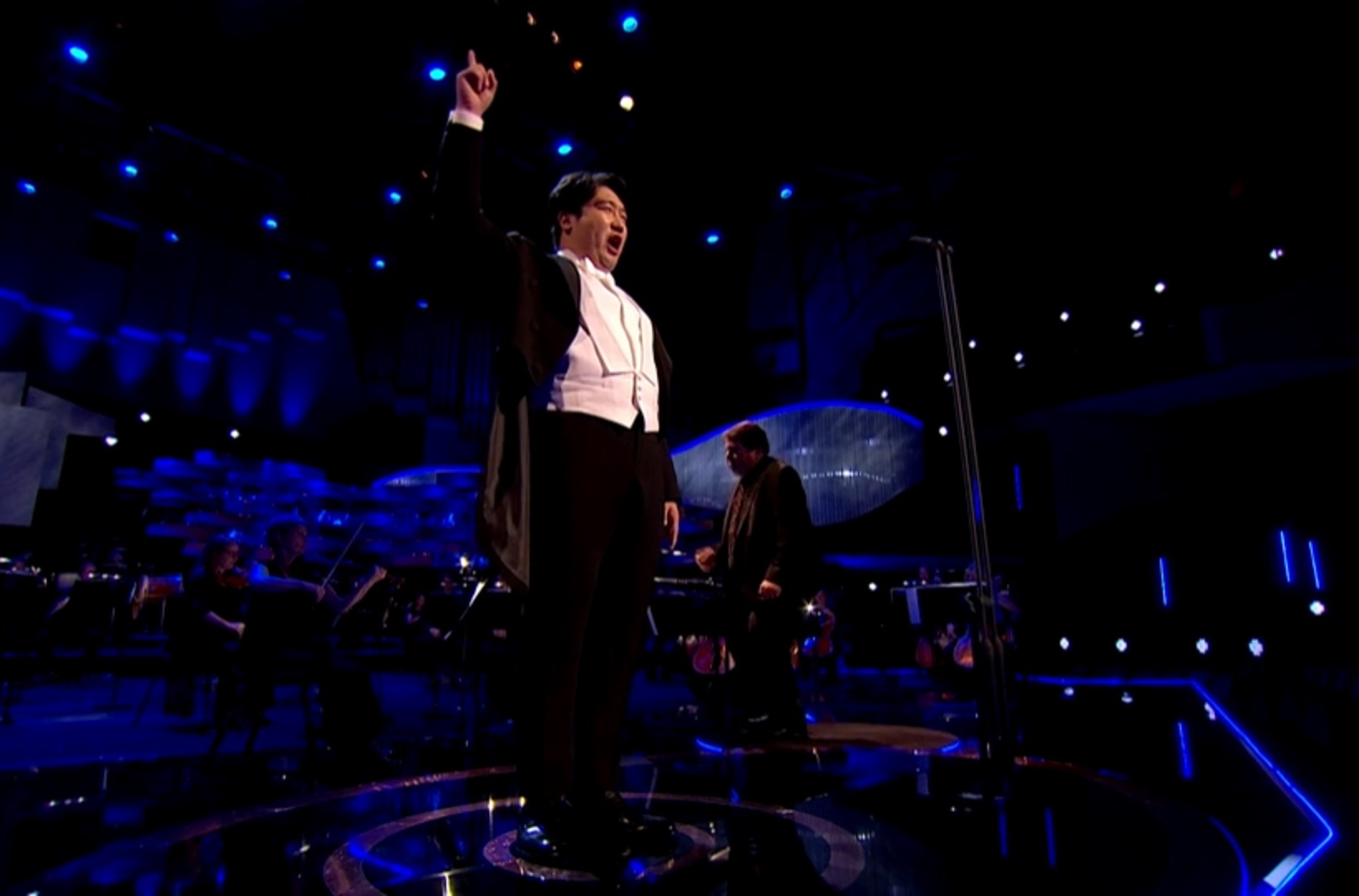 And what a voice: its size, English National Opera's artistic director Annilese Miskimmon told us, was huge in the hall in a way we couldn’t tell on TV or radio, but how burnished and beautiful, what breath control. His trump card actually came in the earlier round on Wednesday, with a mesmerizing performance of Pierrot’s song from Korngold’s Die tote Stadt (The Dead City)– an opera all about memory and longing for the past, embodied in his aria – which also moved the wonderful soprano on the jury, Roberta Alexander, to tears (pictured below).
And what a voice: its size, English National Opera's artistic director Annilese Miskimmon told us, was huge in the hall in a way we couldn’t tell on TV or radio, but how burnished and beautiful, what breath control. His trump card actually came in the earlier round on Wednesday, with a mesmerizing performance of Pierrot’s song from Korngold’s Die tote Stadt (The Dead City)– an opera all about memory and longing for the past, embodied in his aria – which also moved the wonderful soprano on the jury, Roberta Alexander, to tears (pictured below).
In the final, Kim gave us a no-nonsense Largo al Factotum from Rossini's The Barber of Seville, mesmerising legato line in Wolfram's aria from Wagner's Tannhäuser (shades of previous winner Bryn Terfel in the recitative) and Italianate nobility in Gérard's aria from Giordano's Andrea Chénier (second-best to Puccini, Kim's favourite composer, who as he told us wrote no great baritone arias, but this actually sounded like great music in the way he expressed it). 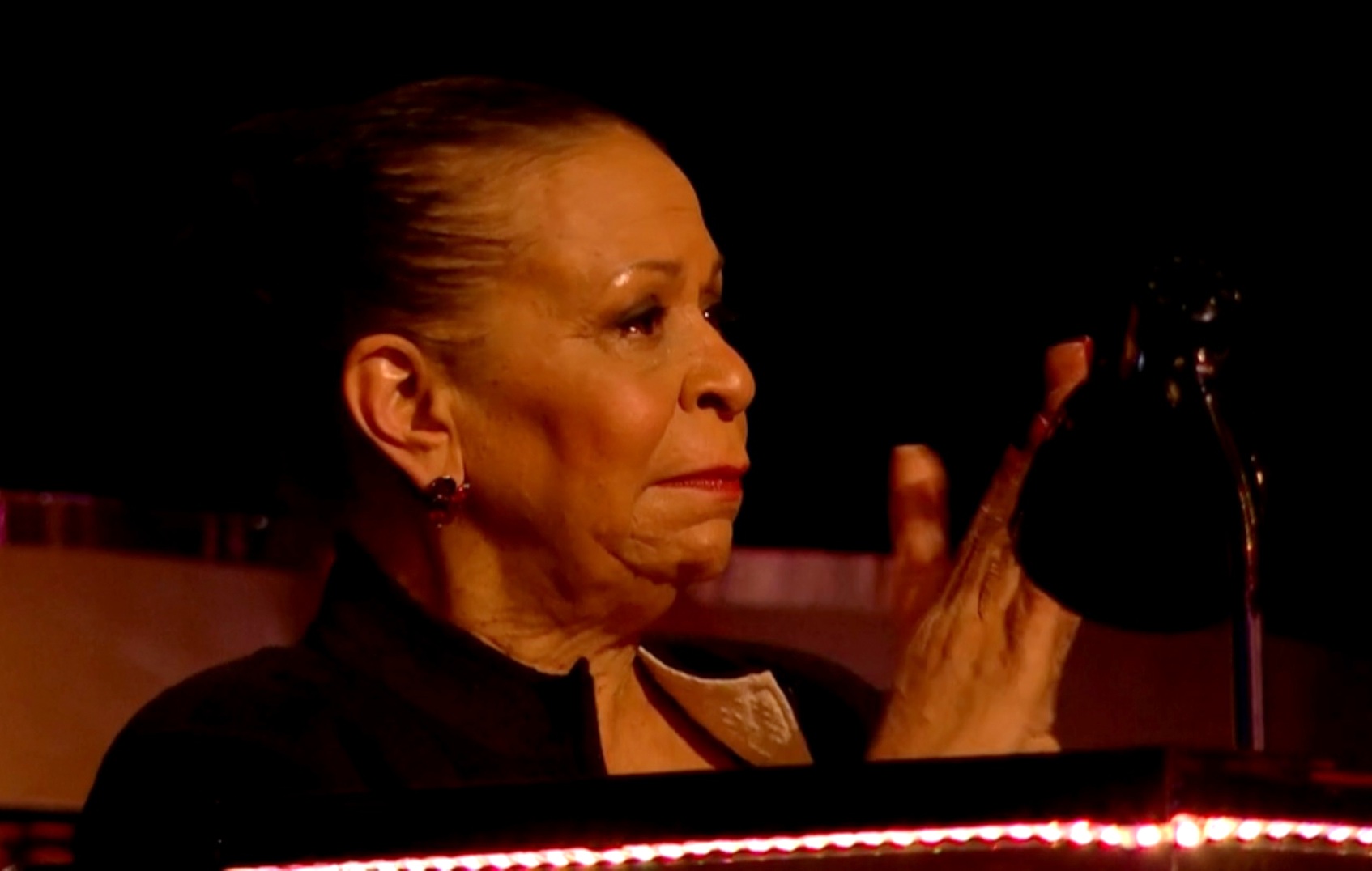 In the final, my own tears flowed for the miracle of South African soprano Masabane Cecilia Rangwanasha embodying majestic, also nostalgic Elisabeth de Valois in her big summing-up aria from Verdi’s Don Carlos (the French-language version). Rangwanasha was also perfect in the third of Strauss’s Four Last Songs, “Beim Schlafengehen” (“Going to Sleep”), nothing daunted by a rather inert violin solo in the middle; for now, I’d say, this singer with a gift from what she would certainly call God, still on the Royal Opera’s Jette Parker Young Artists Programme and as such already stupendous in previous livestreams, should stick to Strauss, some Mozart roles like the Countess and Italian lyric roles verging on spinto – Elisabeth might do, probably not Leonora and Aida just yet. Her contribution on Wednesday’s round came unstuck with wild tuning in “Pace, mio dio” from La forza del destino, but she deserved the wild card comeback for the final (pictured below).
In the final, my own tears flowed for the miracle of South African soprano Masabane Cecilia Rangwanasha embodying majestic, also nostalgic Elisabeth de Valois in her big summing-up aria from Verdi’s Don Carlos (the French-language version). Rangwanasha was also perfect in the third of Strauss’s Four Last Songs, “Beim Schlafengehen” (“Going to Sleep”), nothing daunted by a rather inert violin solo in the middle; for now, I’d say, this singer with a gift from what she would certainly call God, still on the Royal Opera’s Jette Parker Young Artists Programme and as such already stupendous in previous livestreams, should stick to Strauss, some Mozart roles like the Countess and Italian lyric roles verging on spinto – Elisabeth might do, probably not Leonora and Aida just yet. Her contribution on Wednesday’s round came unstuck with wild tuning in “Pace, mio dio” from La forza del destino, but she deserved the wild card comeback for the final (pictured below).
In the last of those rounds, Rangwanasha’s fellow acolyte on JPYAP, mezzo Stephanie Wake-Edwards, made a fascinating choice with the opening sequence of Britten’s Phaedra – 20th and 21st century repertoire, with its preference for music theatre over set pieces, generally doesn’t figure much in this competition – and took thrilling risks, but will need focusing by directors (while Rangwanasha and Kim can always be encouraged to give more). That’s possibly also true of heart-on-sleeve, living-the-moment Austrian soprano Christina Gansch – a feisty Servilia in Richard Jones’s recent Royal Opera production of Mozart’s La clemenza di Tito – who did reach the final. 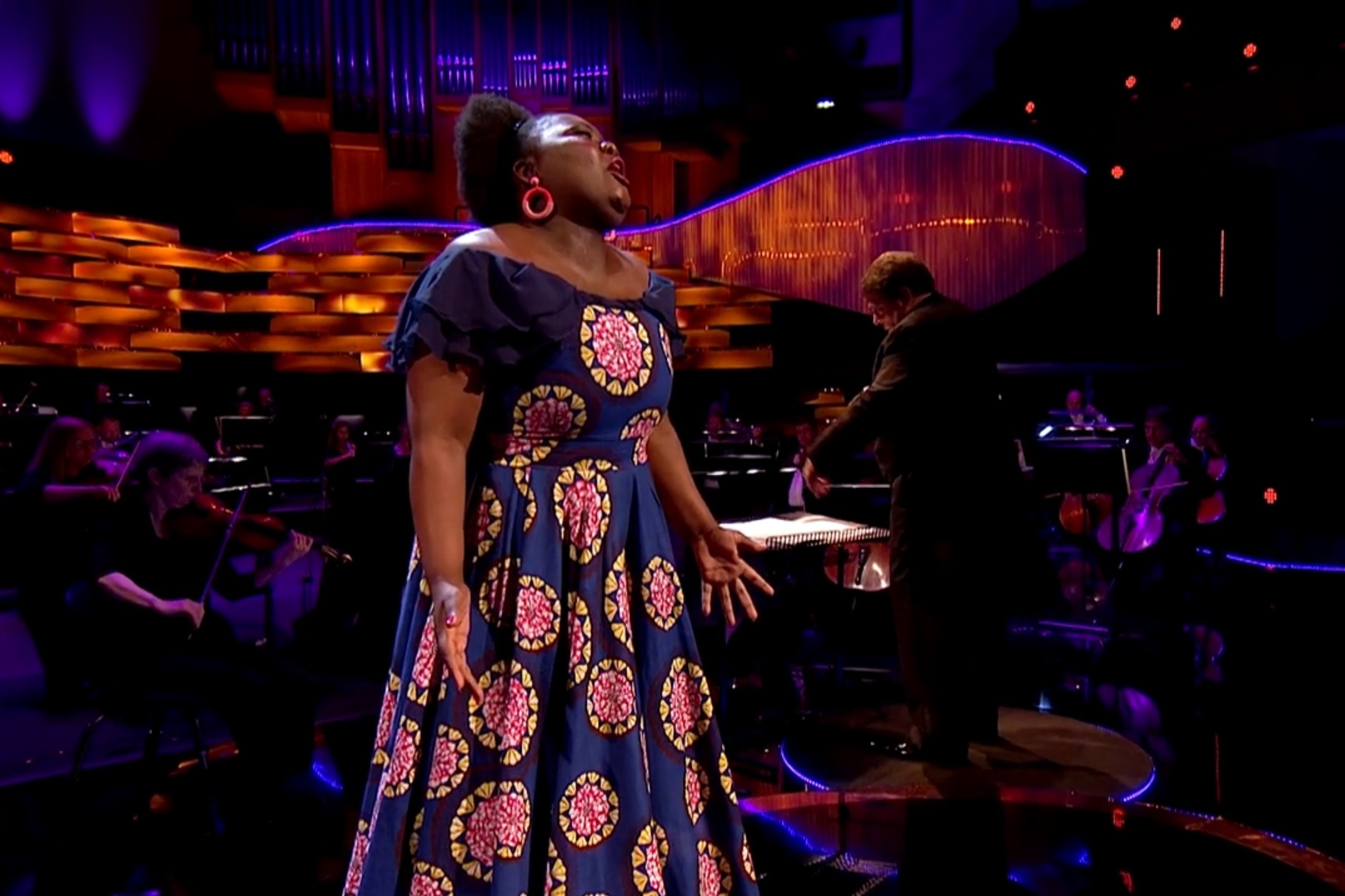 Her previous flamboyance in Lehár's operetta Csárdás mode was a show-stopper which would have done wonders for her in the final, where she gave us an edgy Donna Elvira in Don Giovanni, a forlorn Gretchen as depicted to Goethe’s text in Schumann’s Scenes from Faust and spirited detachment from all that suffering as Medora in Handel’s Orlando. Her earlier Handel (Rodelinda) was nearly sabotaged by unspirited orchestral playing under Michael Christie – Andrew Litton seemed the more supportive of the two conductors, so important – but she sparkled in both florid baroque numbers. One snag: the intensity can verge on the dislikable, maybe in the interests of dramatic truth. Still, as Coote, another to-the-edge performer, pointed out, Gansch’s gift for characterisation is unique and I’d love to see what she does with a full Lieder recital (Rangwanasha, in fact, won the Cardiff Song Prize, which after a full week of real live opera and concerts I have yet to catch up on. UPDATE: I have now - see comment below).
Her previous flamboyance in Lehár's operetta Csárdás mode was a show-stopper which would have done wonders for her in the final, where she gave us an edgy Donna Elvira in Don Giovanni, a forlorn Gretchen as depicted to Goethe’s text in Schumann’s Scenes from Faust and spirited detachment from all that suffering as Medora in Handel’s Orlando. Her earlier Handel (Rodelinda) was nearly sabotaged by unspirited orchestral playing under Michael Christie – Andrew Litton seemed the more supportive of the two conductors, so important – but she sparkled in both florid baroque numbers. One snag: the intensity can verge on the dislikable, maybe in the interests of dramatic truth. Still, as Coote, another to-the-edge performer, pointed out, Gansch’s gift for characterisation is unique and I’d love to see what she does with a full Lieder recital (Rangwanasha, in fact, won the Cardiff Song Prize, which after a full week of real live opera and concerts I have yet to catch up on. UPDATE: I have now - see comment below).
If Rangwanasha was a wild card who rose to great heights, a reserve-list singer who found herself propelled into the competition with 24 hours notice, mezzo Claire Barnett-Jones showed in the earlier round where she’s heading with an impressive Waltraute’s narrative from Wagner’s Götterdämmerung. There was more of that in her most successful choice for the final, the stormy third song from Mahler’s Lieder eines fahrenden Gesellen, “Ich hab’ ein glühend Messer”("I have a glowing knife"). She’ll be singing a Valkyrie in the first new Wagner Ring instalment at English National Opera, where she’s currently a Harewood Artist and Independent Opera Fellow (she told us that in pandemic year she was thinking of giving up singing; she certainly won't now). Maybe Rossini will be good for trying to keep the voice light, but not in performance: her Isabella (The Italian Girl in Algiers) had the bad luck to run up against riveting Georgian mezzo Natalia Kutateladze (pictured below) in the same aria. 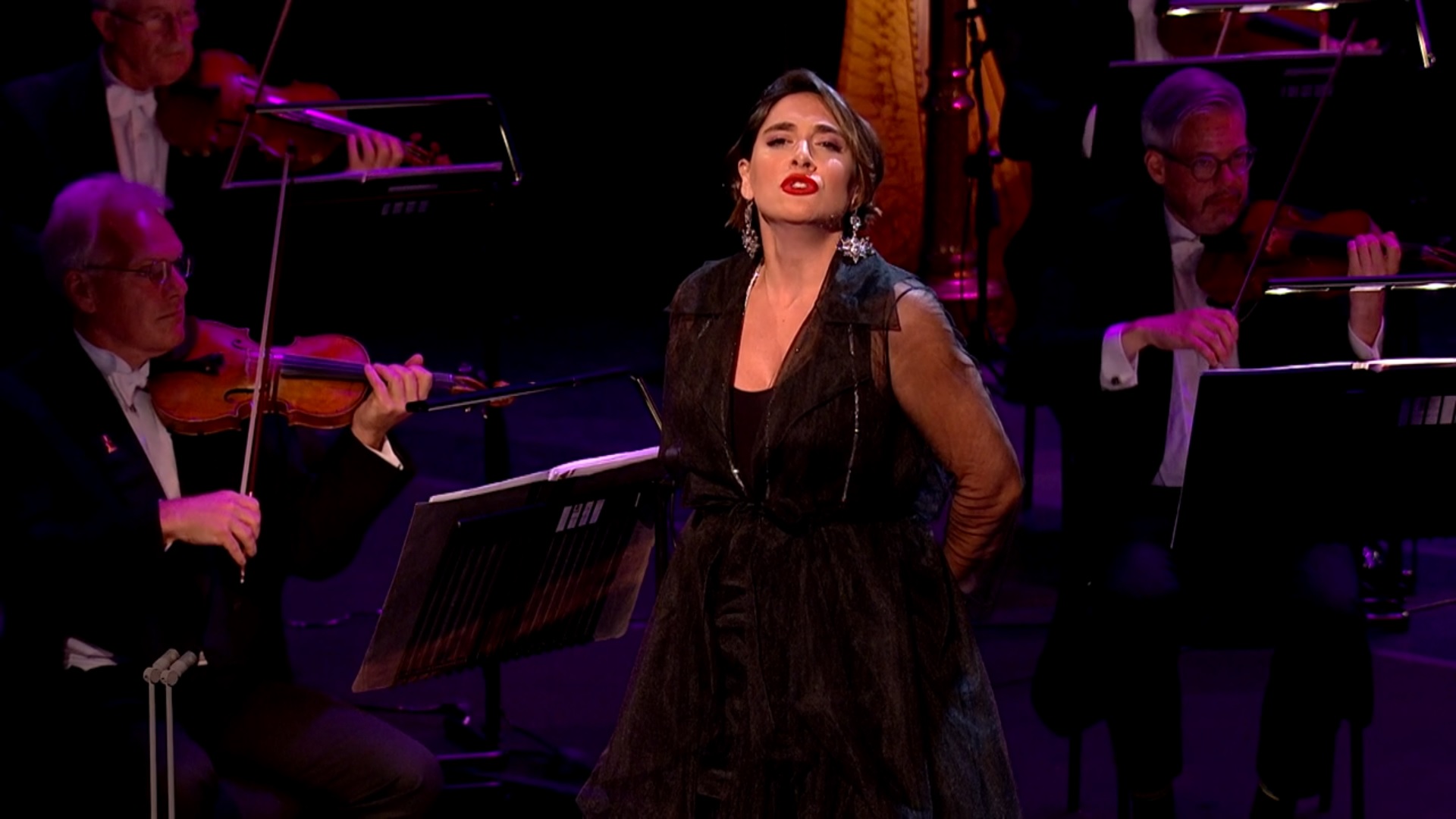 Barnett-Jones, a delightful personality like all the finalists, won the Audience Prize, but Kutateladze was up there with Kim and Rangwanasha for the wow factor and had the most polish of them all. In Carmen’s Habanera, less was more: this statuesque, gorgeous singer only has to float and colour the tone to keep all eyes fixed on her. Bel canto style was there, too, in her final choice, from Donizetti’s La favorita; a brief fall at the final hurdle wouldn’t have disqualified her from being a worthy winner. But you could see how joyful everyone was at the lovable Kim’s victory. It was a reminder that everyone is in this together, grateful to perform and ecstatic to be able to watch. We’ll be rooting for all these singers – including some that didn’t reach the final, like very classy Venezuelan soprano Maria Brea, personable Madagascan baritone Michael Arivony and perfect Italianate light tenor from China Chuan Wang – in the months and years to come. Bravissimi tutti!
Barnett-Jones, a delightful personality like all the finalists, won the Audience Prize, but Kutateladze was up there with Kim and Rangwanasha for the wow factor and had the most polish of them all. In Carmen’s Habanera, less was more: this statuesque, gorgeous singer only has to float and colour the tone to keep all eyes fixed on her. Bel canto style was there, too, in her final choice, from Donizetti’s La favorita; a brief fall at the final hurdle wouldn’t have disqualified her from being a worthy winner. But you could see how joyful everyone was at the lovable Kim’s victory. It was a reminder that everyone is in this together, grateful to perform and ecstatic to be able to watch. We’ll be rooting for all these singers – including some that didn’t reach the final, like very classy Venezuelan soprano Maria Brea, personable Madagascan baritone Michael Arivony and perfect Italianate light tenor from China Chuan Wang – in the months and years to come. Bravissimi tutti!
Add comment
The future of Arts Journalism
You can stop theartsdesk.com closing!
We urgently need financing to survive. Our fundraising drive has thus far raised £49,000 but we need to reach £100,000 or we will be forced to close. Please contribute here: https://gofund.me/c3f6033d
And if you can forward this information to anyone who might assist, we’d be grateful.

Subscribe to theartsdesk.com
Thank you for continuing to read our work on theartsdesk.com. For unlimited access to every article in its entirety, including our archive of more than 15,000 pieces, we're asking for £5 per month or £40 per year. We feel it's a very good deal, and hope you do too.
To take a subscription now simply click here.
And if you're looking for that extra gift for a friend or family member, why not treat them to a theartsdesk.com gift subscription?

Comments
Thank you David for this
Thank you, Kathrin. Maybe it
Thank you, Kathrin. Maybe it's as well I haven't seen negative comments. This is a good place, perhaps, to mention that I caught up with the Song Final. And much as I adore Masabane Cecilia Rangwanasha, and her undoubted show-stopper of a programme, I agree with Sarah Connolly - a marvellous and sympathetic commenter - that if it were to be judged for song AS song, it should have gone either to Christina Gansch or Michael Arivony (my own favourite here, but he's so damned charming!)